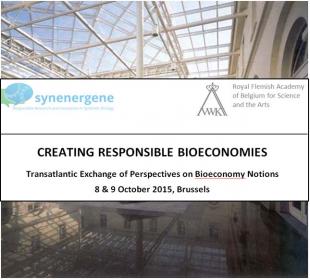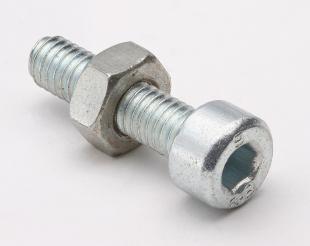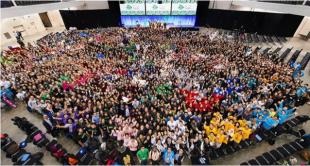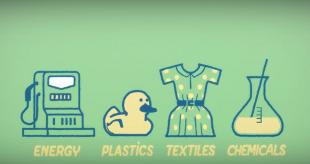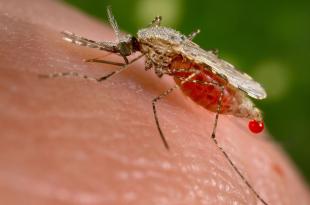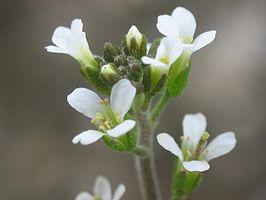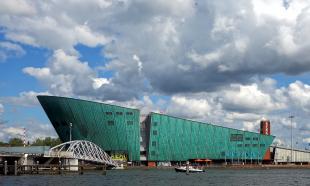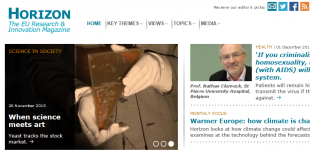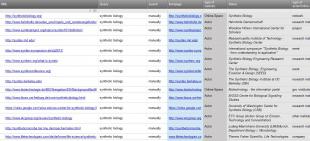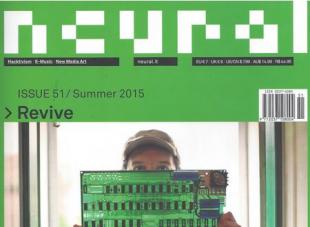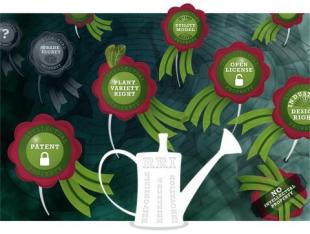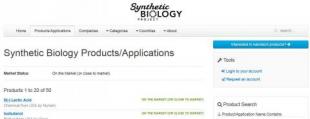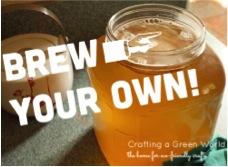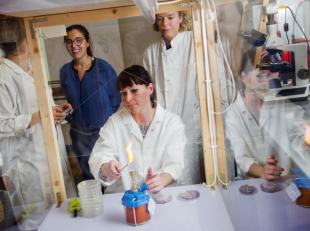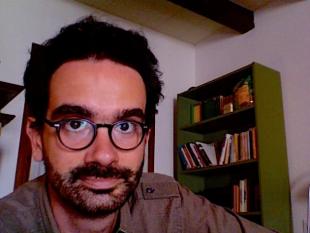This transatlantic exchange of perspectives on bioeconomy notions was organised by KIT-ITAS and TU Darmstadt in collaboration with the Royal Flemish Academy of Belgium for Sciences and Arts and took place in Brussels at the Palace of the Academies on October 8 & 9, 2015. The workshop brought together European and U.S. experts from the fields of policymaking, industry and civil society organisations discussing different stakeholder perspectives on bioeconomic notions, expectations and future challenges.
All
In vitro meat is a new technology field aiming to grow muscle tissue from cell cultures.
Standards are traditionally claimed to be one of the pillars of modern Engineering and as such they are also vindicated as one of the core tenets of contemporary Synthetic Biology.
The mutual learning activities between iGEM and SYNENERGENE were continued this year, as we again called the iGEM teams to reflect on the societal ramifications of their projects by creating two types of scenarios.
In Mid-September, a public dialogue event initiated and organised by a SYNENERGENE mini consortium took place in Karlsruhe.
Synthetic biology is already being used in the processing of biomass to produce industrial goods such as biofuels, commodities for the chemical industry and ingredients for consumer goods.
Late November 2015, a group of scientists from the University of California announced their plans in Proceedings of the National Academy of Sciences to use gene drive technology to engineer a whole population of the mosquito that normally carry th
Joanna Roberts reports in her article "When science meets art" for the European Commission's Horzion Magazine about the
This report focuses on task 6.2, conducted by Zebralog, University of Southern Denmark (SDU) and Karlsruhe Institute of Technology. It includes the assessment of online public opinion about SynBio (synthetic biology) by identifying actors and arenas in the online sphere that “talk” about that topic.
"Discourses on Synthetic Biology in Europe" is a working paper published by Rathenau Instituut in the context of the project "Global Ethics in Science
This report, edited by Rinie van Est and Dirk Stemerding (Rathenau Instituut), is the results of the project ‘Making Perfect Life’ that was conducted for the Science and Technology Options Assessment (STOA) Panel of the European Parliament.
This Rathenau Instituut policy brief, which has been published at the United Nations Office at Geneva's “Think Zone” website for the Sevent
The Royal Netherlands Academy of Arts and Sciences' Biosecurity Committee has published a report on "Improving Biosecurity - Assessment of Dual-use research".
Henk van den Belt's article analyses arguments rasied in the emerging societal debates on synthetic biology and the way its practitioners respond to criticism.
Karlsruhe, 16.09.2015. New technologies have often been accompanied by fear and skepticism on the part of the public.
All stakeholders agree publicly that innovation and governance of emerging technologies should be done responsibly. However, the international debate on who should do what to contribute to this lofty goal is nowhere near a solution.
Eugenio Battaglia has written a report on the BIO·FICTION Science Art Film Festival in Vienna for the Italian magazine "Neural".
What are the potential benefits and risks associated with altering human DNA? Is science and society prepared for the ethical, moral, and policy questions raised by new technological capabilities?
As part of their collaboration with SYNENERGENE, the iGEM 2014 team of Valencia Biocampus worked on questions of intelectual property in synthetic biology.
Videos from the colloquium "Biologie de synthèse/ Biologie de garage", held in Paris on June 26th, 2015, are available online, together w
The session with the title "Public engagement with synthetic biology" took place on June 13th, 2015, at Ecsite's
The Woodrow Wilson International Center for Scholars has unveiled an interactive inventory to track products a
BIO∙FICTION Science Art Film Festival was a three-day event hosted by Biofaction KG as part of the SYNENERGENE project from 23-25 October 2014 at the Museum of Natural History in Vienna, Austria.
Recently developed technology to make morphine and other opiates from glucose with synbio-engineered yeast may have an advantage in terms of cost-effectiveness, secureness, safety and decreased addictiveness compared with conventional opiates prod
On February 17, 2015, 60 people on three continents started participating in the first BioHack Academy organised by De Waag in Amsterdam. They could follow lectures that were given and recorded every week.
SYNENERGENE facilitates the process of the shaping of SynBio research and SynBio-derived innovation according to societal needs (Responsible Research and Innovation) in many different ways.

